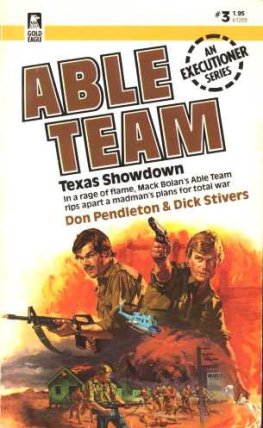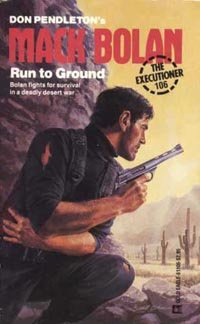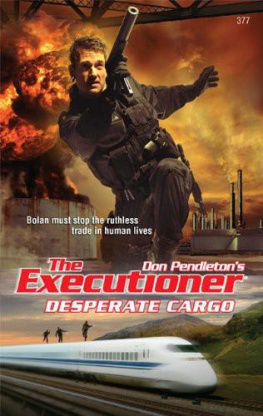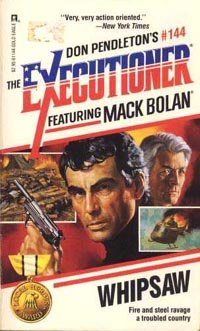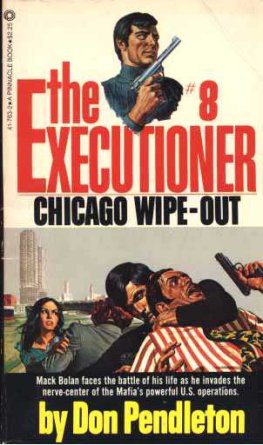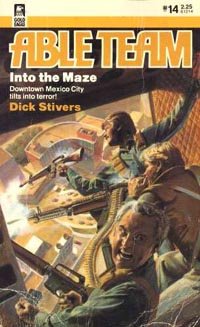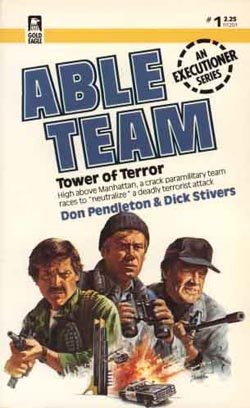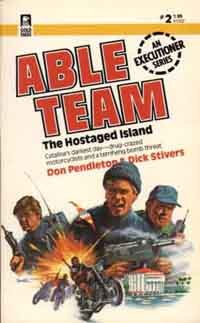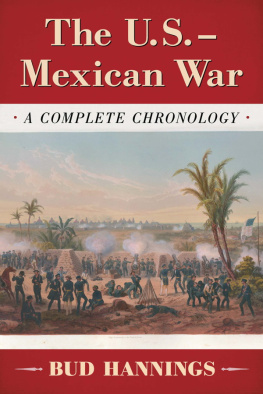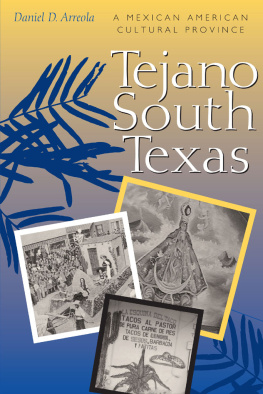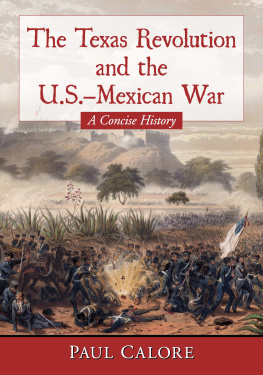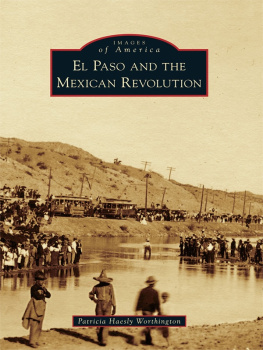Don Pendleton & Dick Stivers
Texas Showdown
Proofed by unsung hero.
Jet blast tore at their clothes.
Carl Lyons cupped his hands over his ears, followed Gadgets Schwarz up the aluminum steps. An enlisted man ran after them with their overnight bags and the suitcase containing their weapons. Pausing in the jet's door, Lyons glanced back as the helicopter that had ferried them from Stony Man Farm in Virginia lifted from the concrete, the shriek of its rotors overwhelming even the roar of the USAF jet's engines. In seconds, the helicopter was lost in the night sky. Carl Lyons entered the jet. Another mission.
"Where to this time?" Gadgets asked Brognola.
"Bolivia." That good man Hal Brognola, now powerfully ensconced as Stony Man's White House liaison, had their briefing already prepared. He gave them folders with photos and typed sheets. Maps and grainy black-and-white aerial photos covered the conference table.
"Where's the Politician?" Lyons wanted to know. His blue eyes coolly observed the documentary data. His frame, robust like a veteran cop's but lean, youthful, was hunched as if in preparation for the action to come.
"Blancanales is already on his way. He was in the city, so we sent him on ahead while we assembled this information. He's better qualified to go in cold. At least in South America."
"What's going on there?" Lyons asked. He flipped through his information folder, saw maps of New Mexico, Texas, northern Mexico. "If we're going to Bolivia, why..."
"Who's this Monroe?" Gadgets held up a color photo of an elderly man in a suit ten years out of style. Airbrushing had added flesh-tone pink, but the old man's skin remained dead gray.
"You're going to Bolivia so that you can meet Mr. Monroe in Texas."
"Why don't we just go there straight?" Lyons queried impatiently.
"Two federal agents did exactly that. And now they're dead." Brognola glanced at his watch. "We have approximately fourteen hours until we arrive in La Paz. Read through the material. Prepare your questions."
"Who were the men who died?" Lyons asked.
"One was FBI. They found what was left of his body in a burned-out car. The next man was CIA. They found his body in a ditch. Death from exposure and sunstroke. Restraint marks on his wrists and ankles. He'd been staked out until he died, then dumped. But all of that is in your folders. Study the information. Your lives depend on it. You're the next men in."
Born the illegitimate son of a soldier and a West Virginia farmgirl, Tate Monroe went to Texas before he turned seventeen. Starting out as a laborer, he learned oil drilling and became a wildcatter. He earned his first million dollars in 1928, when he was almost twenty-one years old. Alarmed by the irrational economics of the late 1920s, he diversified into Latin American oil, minerals, and agriculture. The Great Depression multiplied his wealth.
He insured his Latin American holdings by investing in dictators. When political upheaval threatened his companies, he financed both the repression and the revolution, first buying the loyalty of the government in power, then, through a maze of false bank accounts and fictitious persons, buying the gratitude of all possible challengers to the government. Unverified reports alleged that Monroe often resorted to direct involvement to determine the future of small nations. The reports quoted second and thirdhand stories of bribery, disappearance, assassination and atrocity. American agencies pursuing in-depth investigations lost contacts and agents. Mysterious fires destroyed records in agency offices, not only in Latin American countries but in Washington, D.C. Agency directors received warnings from congressmen and senators that if the agencies did not return their attention to the prosecution of criminals and communists, they risked severe cutbacks in funding. Investigations ended abruptly.
But he could not stop the nationalization of his Mexican oil fields in 1938. President of Mexico Lazaro Cardenas was not to be bribed. President Cardenas refused to bow to Monroe's threats; he put the future of his nation above his own survival. Monroe could not get his assassins within range of the president before the brave Mexican completed the nationalization. And then Monroe could not take revenge: even if he could have killed President Cardenas, the assassination would not have regained Monroe's holdings; and further, the assassination would have risked war between Mexico and the United States, when the American government wanted Mexico as an ally against the European fascists. Secret memos revealed that only personal intervention by President Roosevelt and several senators convinced Monroe he would serve the interests of the United States and the Allies by accepting his Mexican losses.
But Monroe's compliance had a price. Unknown to the public and other defense industries, the War Department exempted Monroe's industries from competitive bidding. World War II made Tate Monroe a billionaire.
Newspaper and magazine writers created an American legend of Monroe's life. A poor boy who wrenched wealth from the Texas frontier by his own strength and daring made for sensational reading. As a man, his exploits filled the pages of the financial sections and the Hollywood gossip columns, as one day he led his workers to recapture a remote oilfield from communist revolutionaries, and the next day he took to bed an actress twenty years his junior. Heard in the rumor mills were the sounds of jazz and starlets' laughter in the primitive camps of his isolated enterprises. But there were other stories that would never appear in newspapers or magazines. Filed in locked cabinets of government agencies and the "Capitalist Atrocity" stacks of leftist agitators, these other stories detailed the annihilation of Indian tribes, spoke of "examples" made by chainsaw mutilation, "police actions" fought with Thompson submachine and Browning machine guns against machetes and rocks. The use of a "field-expedient" napalm crude oil mixed with gasoline and dropped from a thousand feet in 50-gallon drums became a standard device in Monroe's so-called Indigenous Education Program.
Then in the fifties and sixties, Monroe International was forced into retreat. Revolutions seized some operations. Dictators not content with bribes representing only one or two per cent of profits took one hundred per cent. But financial analysts knew that the single most significant cause mirrored the decline of the man Monroe. Earlier in his life, when an affair with an actress or model or singer took him away from his company, company profits leveled and exploration ceased. Monroe had no faith in underlings who could not equal his cunning and brutality, yet never trusted those who matched him. As his health failed there was skin cancer, minor ailments, a major heart problem his company operation withdrew to those sectors that could be managed by bank staff and accountants who never raised their voices in anger. Monroe lost his Latin American operations or leased them to the more dynamic multinationals.
He did not enjoy his retirement. His mind was twisted by age and medication, and Monroe ranted, for hours about how his corporation's decline began in 1938, when politics stopped his attempt to retake the Mexican oilfields.
The United States government relaxed its surveillance of the aging oilman. Monroe was seemingly an old man near death. Newspapers did not even print his rantings anymore. He was no threat.
Until the news about the mercenary army.
"And that's when the FBI tried to slip a man in," Lyons commented. "They waited until the old creep had pulled in his horns, then tried to move a man in when it was already too late. Not smart!"
"Why Bolivia?" Gadgets asked. "Monroe had some kind of operation going there?"

